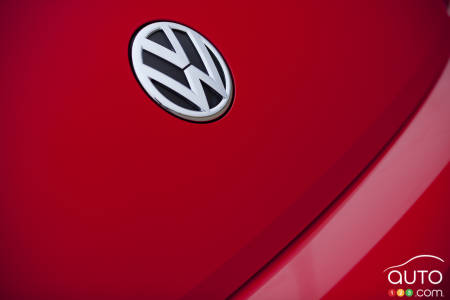Everybody’s talking about Volkswagen after it was caught cheating during emissions tests on diesel vehicles. For the German manufacturer, the situation seems to get worse by the day, with an increasing number of investigations, recalls, and class actions. CEO Martin Winterkorn has become the face of evil, and in older times he likely would have found a rope around his neck. Actually, Winterkorn resigned on Wednesday after once again expressing how sorry he is and taking full responsibility for the fiasco. However, he also denied “any wrongdoing” on his part, stating that Volkswagen simply “needs a fresh start.”
What’s this all about? What are the facts and what are just rumours? Here’s a recap of Dieselgate so far, as well as a preview of what may be in store for Volkswagen in the next few months.
1. How an NGO and a university uncovered the cheating
Two years ago, the International Council on Clean Transportation (ICCT), a non-governmental organization based in the U.S. and Germany, wanted to prove that vehicles sold in America were cleaner because they had to meet tougher emissions standards. Together with researchers at West Virginia University (WVU), they conducted tests on a number of models and noted a significant difference between their numbers and the ones posted by American authorities.
They alerted the U.S. Environmental Protection Agency (EPA) and the California Air Ressources Board (CARB), which held their own tests. As it turned out, Volkswagen’s diesel-powered cars did not match their performance in the initial tests. In fact, they were reported to be 40 times (!) dirtier than advertised.
That’s pretty ironic since the ICCT and WVU researchers were hoping to demonstrate the opposite. If many of the world’s greatest inventions happened by mistake or unwillingly, I guess we can say the same about the scandals and lies that have been brought to light. Faced with the facts, Volkswagen had no other choice but to admit having installed special software in 482,000 vehicles sold in the U.S. from 2009-2015. This “defeat device” helped the company bypass emissions rules.
2. The actual scope of the scandal
On September 18th, the news broke out and shocked the globe. Volkswagen acknowledged the existence of a “defeat device” allowing diesel engines to detect when they were undergoing emissions tests and activate special control modules during those times to bypass the rules.
At the Frankfurt Auto Show, where Volkswagen announced a plan to launch 20 hybrid and electric cars by 2020, the exposed cheating hit the industry like an atomic bomb. Immediately, a recall on all affected models was issued in the U.S., and sales were put on halt.
Then, a few days later, a VW press release indicated that a total of 11 million Volkswagen and Audi vehicles were affected worldwide. Boom! The scope of this scandal is much broader than Hyundai-Kia’s erroneous fuel consumption ratings. Now, authorities in several countries around the globe have launched their own investigations.
3. VW’s plummeting stock affects the whole industry
Inevitably, Volkswagen’s stock began to plummet in historic proportions. But don’t think that competitors are rejoicing. You know how the markets work and how investors think; VW is dragging down other automakers and costing the entire industry billions in stock value. In just two days, the German manufacturer lost more than a third of its stock (approx. €25 billion), and many rival automakers endured losses of 3%-18%.
Parts suppliers are taking a hit, too. Volkswagen is Magna’s sixth largest customer, and the latter has seen its stock drop since the start of the week.
While Volkswagen is officially the one that cheated, the rest of the industry is now being targeted by investigators everywhere. After all, it would be foolish to assume that no one else has violated the laws in any way, as our own Matt St-Pierre pointed out in his blog. What if others duped the regulators as well? Suspicion is running deep.
4. Volkswagen and Audi vehicles recalled in the U.S. and Canada
As soon as the revelation made headlines, Volkswagen USA announced a stop-sale order to dealers for all 2015-2016 diesel cars, along with a recall on units that were equipped with the aforementioned defeat device. Volkswagen Canada and Audi Canada have since followed suit, suspending sales of new and used diesel models. What’s more, any reference to these models has been removed from their websites.
The EPA has published the full list of vehicles in violation of the Clean Air Act in the U.S. These violations do not present a safety hazard, and the cars remain legal to drive and resell. Owners do not need to take any action at this time.
Affected diesel models include:
- Jetta (MY 2009 – 2015)
- Jetta Sportwagon (MY 2009-2014)
- Beetle (MY 2012 – 2015)
- Beetle Convertible (MY 2012-2015)
- Audi A3 (MY 2010 – 2015)
- Golf (MY 2010 – 2015)
- Golf Sportwagon (MY 2015)
- Passat (MY 2012-2015)
Sources say Volkswagen Canada is seriously considering a trade-in program for affected owners. Customers who own one of the previously listed models could trade it for a gasoline equivalent and pay the difference in pricing if applicable.
On both sides of the border, class actions against Volkswagen are multiplying like dandelions in the spring. Don’t forget the upcoming fines and possible criminal lawsuits. With investigations launched not just in North America, but also in Germany, Korea, Italy, the U.K. and several other countries, Volkswagen will lose a fortune.
5. What’s next for Volkswagen?
There is plenty of speculation at this point, and nobody can say for sure what the next few months have in store for Volkswagen and the auto industry as a whole. There will be fines, most certainly – several sources hint at $37,500 per vehicle or $18 billion total in the U.S. This number will skyrocket when you include the 10.5 million other vehicles affected worldwide. Volkswagen AG may be the best-selling automaker on the planet through the first half of 2015, but it doesn’t have a bottomless well of cash.
Billions were lost at the stock exchanges and through lost sales, and more will be spent in class-action compensations and image-restoration efforts. Then you can add the recalls. Sure, people ignore recalls all the time, even when they aim to fix critical safety issues. However, owners may not have the choice this time: Because these cars are a public health threat and exuberantly break federal law, Wired magazine claims, the NHTSA could flag them and refuse to issue a new registration or let them pass a smog test unless proof of a fix is offered. The resale value will likely drop no matter what.
What about the guilty-by-association dilemma? Will suspicious customers steer clear of Volkswagens altogether including gasoline models? Will other diesel car manufacturers such as Mercedes-Benz, BMW and Peugeot experience dwindling sales because of public fears that they too might have cheated?
This has been a very dark week for the auto industry, and while Martin Winterkorn has already agreed to resign, more heads are expected to roll. The nightmare for Volkswagen AG (and its 12 different brands – just ask Porsche) is far from over, and the current scandal might even signal the demise of diesel engines.
As a consumer, would you still purchase Volkswagen or Audi products, diesel or not? Do you still trust the company?



